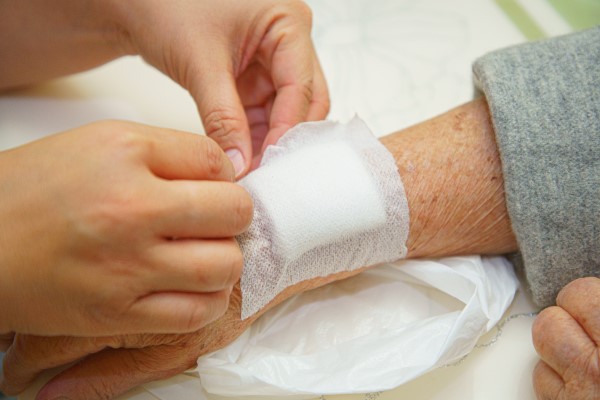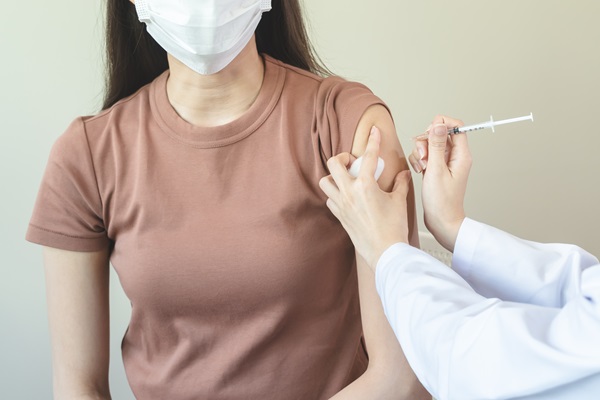What Is Laceration Care?

Want to learn more about laceration care? While most people accidentally cut themselves at one time or another, it can sometimes be difficult to know whether a cut, or laceration, needs medical attention. A laceration may need to be medically addressed when it is over a joint or if it is so deep that fat, muscle or bone can be seen inside the wound. Many lacerations take place when someone is cooking or playing sports.
What does a laceration mean?
Looking for more information on laceration care? It can often be difficult to know how to care for a laceration, more commonly known as a cut. A laceration means that there is a break in the skin, which is often caused by some type of sharp object. Common causes of lacerations include falling down, coming into contact with broken glass, using a knife, using scissors and being involved in an automobile accident.
Signs and symptoms of lacerations
While the most obvious sign of someone having a laceration is an actual cut in their skin, there are additional signs and symptoms that can occur. This includes but is not limited to some degree of pain, bleeding, bruising, swelling and skin discoloration.
When to seek medical assistance
Minor lacerations can often be treated at home using self-care methods. Even though minor lacerations may not require any medical assistance, they still need to be treated in order to ensure that it does not become worse or get infected. It is necessary to seek medical assistance when it is hard to control the bleeding of a laceration, when the laceration is close to the eye, when the laceration is deep and/or when someone is showing signs of shock, e.g., weak pulse, rapid breathing, etc.
What does at-home laceration care involve?
At-home care for lacerations includes carefully and thoroughly cleaning the cut with soap and water. A thin layer of antibiotic ointment needs to be applied to reduce any chance of infection. A sterile bandage needs to be placed over the entire area to protect it while it heals. If any signs of infection occur during the next few days, making an appointment with a medical professional is necessary to address the infection.
What does professional laceration care involve?
The first thing a medical professional will do when treating a laceration is to stop the bleeding. They will then clean the wound so they can determine what type of treatment is necessary. Many people with lacerations will receive stitches to close the wound. If there are any signs of infection, then the medical professional will prescribe antibiotics for the patient. If the patient is overdue for a tetanus shot, they will need to get this shot as well.
We are your go-to urgent care facility
Whether you are in need of laceration care or another type of medical service, our urgent care clinic is available to you. Our experienced professionals know how to handle your emergency situation in a proficient and timely manner. You can choose to walk in or make an appointment; either way, you will be seen by a medical professional within an hour. Any questions? Simply give us a call!
Get more information about Texas Urgent Care & Imaging Center in New Caney at https://tx-urgentcare.com.
Check out what others are saying about our services on Yelp: Laceration Care in New Caney, TX.
Recent Posts
Flu shots protect children from common strains of influenza. No one wants to be stuck in bed dealing with the symptoms of this common illness. A flu shot can help prevent complications and reduce the chances of catching the flu in the first place. A primary care or urgent care doctor can further discuss the…
Consulting your primary care physician, or "PCP," regularly can help ensure good health. This typically means every three years for most healthy adults under age 50. After your 50th birthday, annual physicals are advised. But what if you have a minor illness? It can be difficult to tell whether you should visit your PCP. This…
Immunizations are an important part of primary care. Not only can they help prevent illness, but they can also reduce the chance of complications should you get sick. Whether you want to get ahead of flu season or whatever else may come your way, your primary care doctor can provide the vaccinations you need.When many…
A walk-in clinic can provide you with the care that you need without the stress of waiting for an emergency doctor in a crowded room. Receiving immediate care is important whenever you are injured or sick. That is why choosing an urgent care clinic over an emergency room is ideal. Here are the benefits that…


